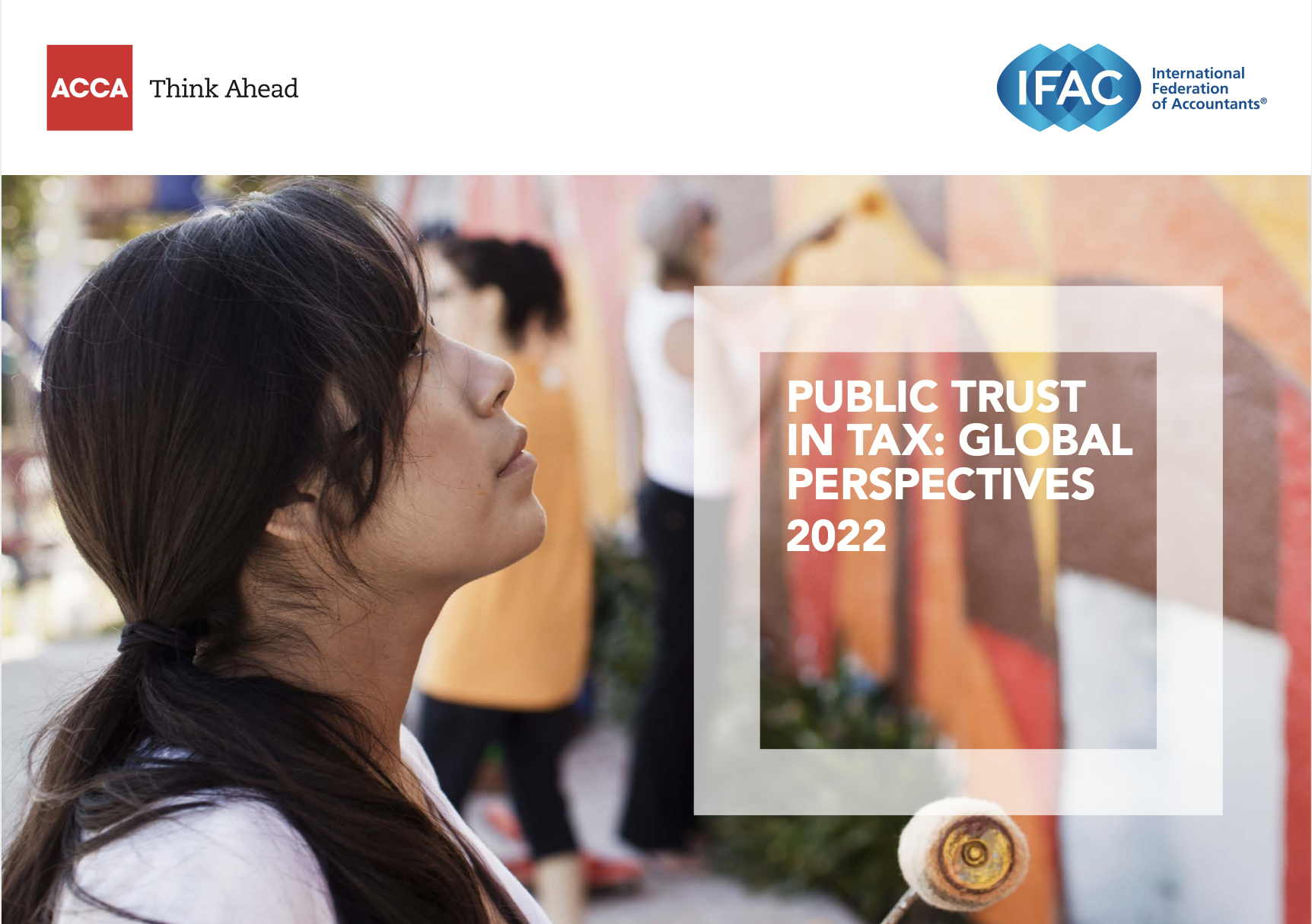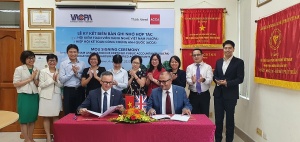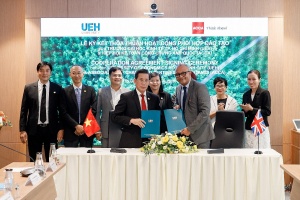Vietnamese place high trust in tax system
The Association of Chartered Certified Accountants (ACCA) and the International Federation of Accountants (IFAC) study of public trust in tax was rolled out across 14 countries, surveying 5,900 people – many in developing economies, and published in September.
It found that trust in the tax system was lower when taxpayers perceived higher levels of corruption and diversion of public funds. Vietnam was one of the few countries where the level of trust for key actors in the tax system, such as government officials and professional accountants, remained high.
 |
Since 2017, ACCA and IFAC have been gathering opinions of the public towards their tax systems, but this was the first time they had focused on nations outside of the G20, providing insights into who taxpayers trust and what concerns them in developing economies. The survey was backed up by a series of roundtables to explore attitudes further.
IFAC CEO Kevin Dancey said, “The relationship between taxpayers and governments, and between businesses, society and tax systems will be fundamental to the survival of the economies that support us all, both in the short and long term. Politicians are central to the decision-making process in tax policy, while their personal behaviour can drive public perceptions of, and engagement with, the tax system.”
The roundtable participants saw a lack of trust in politicians as a major barrier to tax engagement with the systems. Nonetheless, respondents in Vietnam were the most likely to report trust in politicians. Over 69 per cent of respondents in the country reported that they either trust or highly trust this source. This far outweighed the next strongest country, Egypt, which saw just over 41 per cent of respondents reporting trust in politicians.
Egypt and Vietnam were the only countries where the number of respondents reporting a degree of trust outweighed the number reporting distrust. Overall, there is a high sentiment of distrust for politicians among other countries, with a net trust deficit of minus 25 per cent.
Professional accountants are another key actor supporting taxpayers in their interaction with tax systems. They play a vital role in helping governments formulate evidence-based tax policy.
In contrast to the general trust deficit, across every country in the survey, trust in accountants was the highest of any stakeholder group, with respondents showing a clear belief that accountants play a positive role, contributing to a more efficient (71.9 per cent), more effective (70.2 per cent), and fairer (67.4 per cent) tax system.
The lowest prevalence of distrust was seen in Vietnam, with just 3.6 per cent of respondents distrusting accountants.
Trust in the media was highest in Vietnam and Nigeria, where 61.3 per cent and 59.4 per cent of respondents, respectively, reported some degree of trust.
| A study themed Public Trust in Tax by accountancy bodies ACCA and IFAC reveals a high level of trust for politicians and accountants among Vietnamese taxpayers. |
Online services ranked as the most commonly used service in managing tax affairs, selected by 42.2 per cent of respondents across the entire survey. This compares with 36.9 per cent of respondents among the G20 countries surveyed the previous year. This was closely followed by the use of professional tax accountants, which was reported by 41.2 per cent of respondents in this year’s sample.
This shows taxpayers are using at least two services to manage their tax affairs, possibly three or more (professional tax accountants, online tax services, bookkeeping software, and professional tax lawyers). In Vietnam, the most common service used is professional tax accountants at 59.4 per cent.
Respondents also strongly support the use of tax incentives to target trends such as climate change (73.8 per cent) and the ageing population (72.8 per cent) and specific positive economic outcomes such as tax incentives to attract international investment (73.9 per cent).
Ren Varma, ACCA regional director of Mainland Southeast Asia said, “ACCA believes financial professionals play an essential role in transforming the world towards a more equitable, green, and inclusive future; and from this study, we can see that the general public also believes in the positive role of the accountancy profession. We will continue to update financial professionals, policymakers and governments with insights and data, such as the Public Trust in Tax study, to enhance social trust and engagement, not only to contribute to reshaping current tax systems but also towards a more prosperous and resilient global economy and a better world for the future.”
 | ACCA and VACPA renew cooperation The Vietnam Association of Certified Public Accountants (VACPA) and the Association of Chartered Certified Accountants (ACCA) have extended their MoU, closely and effectively coordinating through training activities and improving knowledge for members for the next five years (2022-2027), thus contributing to the development of accounting and auditing professions in Vietnam. |
 | ACCA and UEH enhance opportunities for Vietnam’s future accountants Following an announcement in February, the Association of Chartered Certified Accountants (ACCA) and the University of Economics Ho Chi Minh City (UEH) have inked a cooperation agreement to implement modules from ACCA’s Advanced Diploma in Accounting and Business at UEH, placing UEH students on a fast-tracked path to success in their finance and accounting careers. |
What the stars mean:
★ Poor ★ ★ Promising ★★★ Good ★★★★ Very good ★★★★★ Exceptional
Related Contents
Latest News
More News
- Raised ties reaffirm strategic trust (February 20, 2026 | 14:06)
- Sustained growth can translate into income gains (February 19, 2026 | 18:55)
- The vision to maintain a stable monetary policy (February 19, 2026 | 08:50)
- Banking sector faces data governance hurdles in AI transition (February 19, 2026 | 08:00)
- AI leading to shift in banking roles (February 18, 2026 | 19:54)
- Digital banking enters season of transformation (February 16, 2026 | 09:00)
- IFC to grant $150 million loan package for VPBank (February 13, 2026 | 09:00)
- Nam A Bank forms position as strategic member at VIFC through three key partnerships (February 12, 2026 | 16:39)
- Banks bolster risk buffers to safeguard asset quality amid credit expansion (February 12, 2026 | 11:00)
- VNPAY and NAPAS deepen cooperation on digital payments (February 11, 2026 | 18:21)

 Tag:
Tag:
















 Mobile Version
Mobile Version